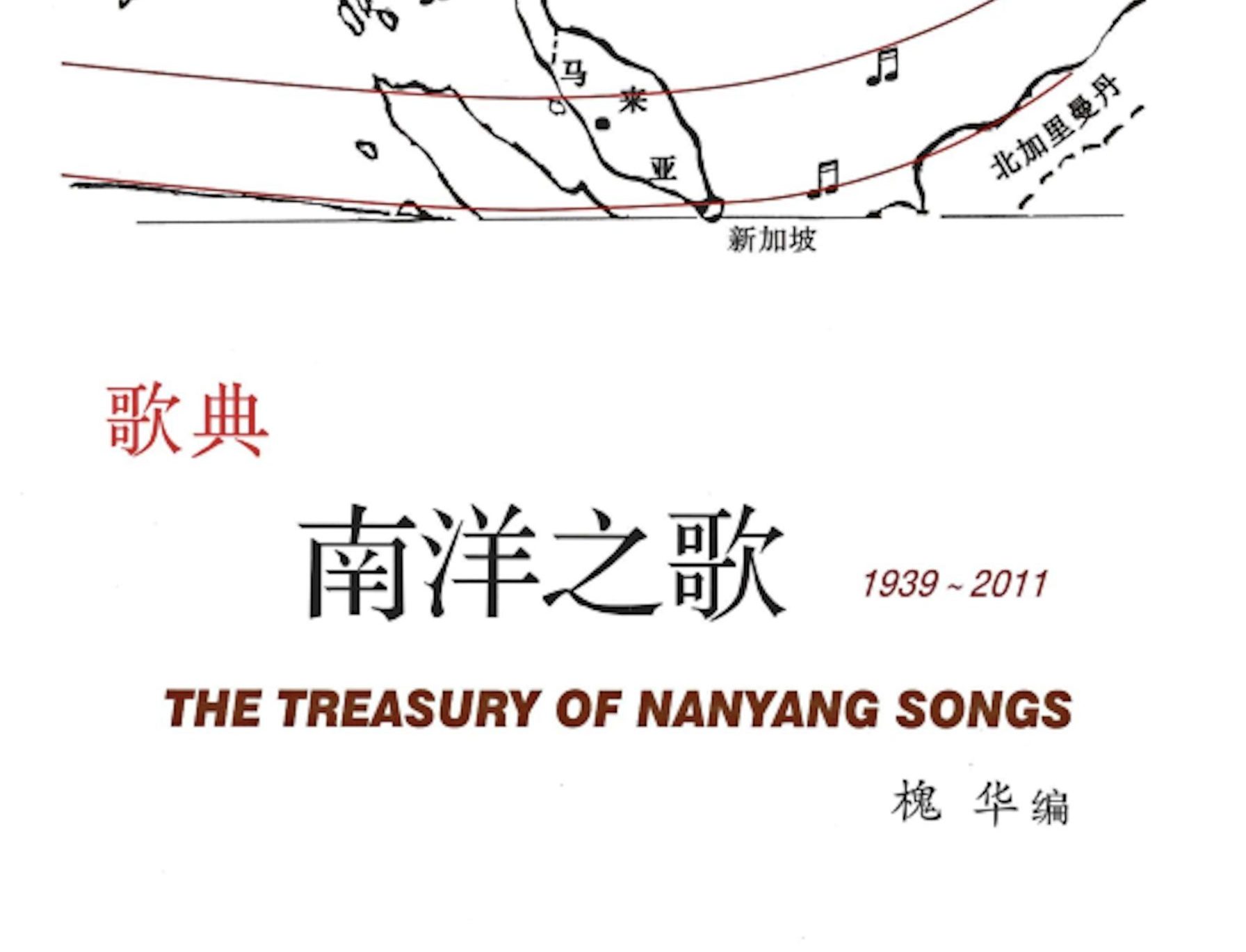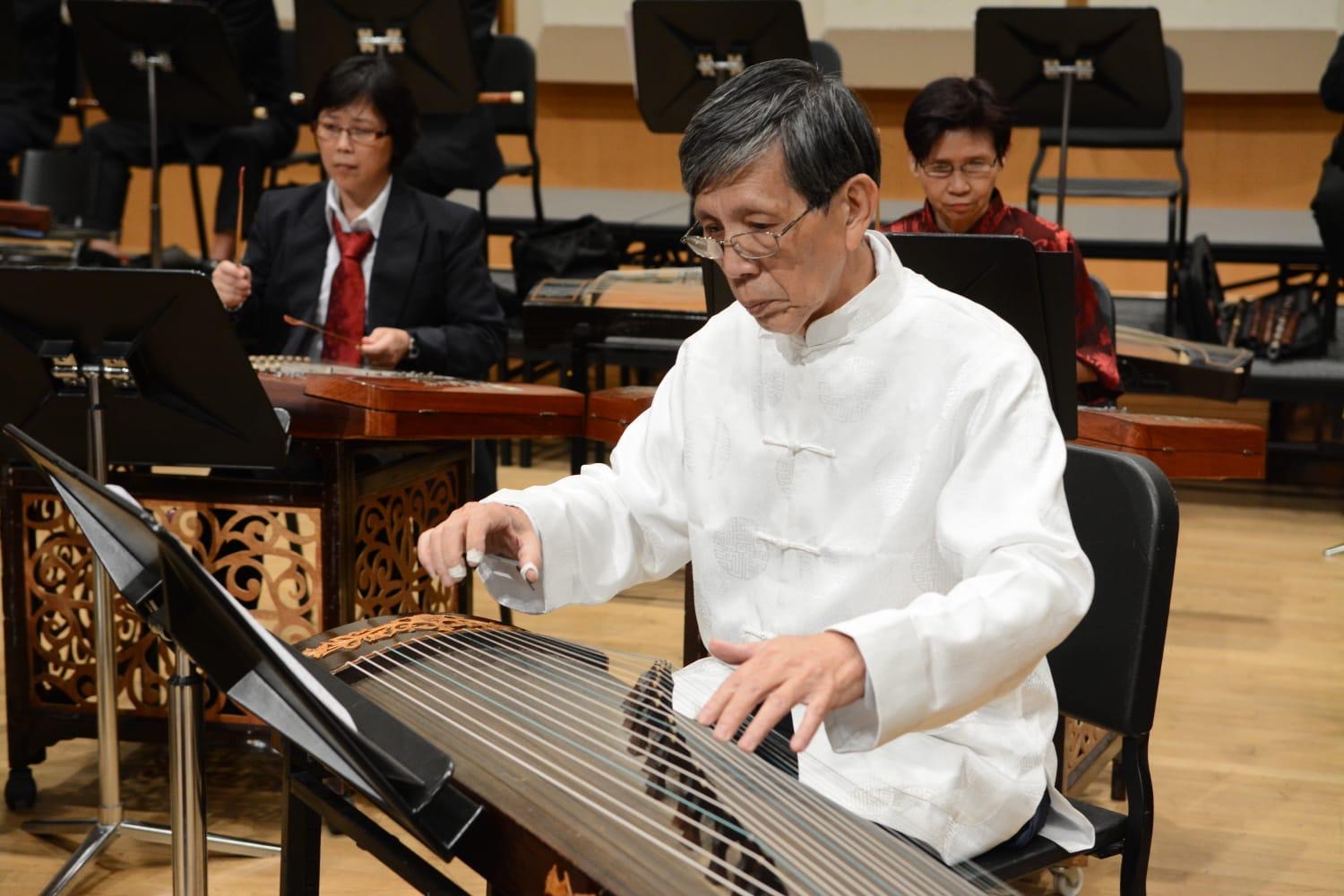Shiyue: The ‘prelude’ to xinyao
Between 1978 and 1981, members of the Chinese Poetry Club at Nanyang University (Nantah) pioneered a performing art form known as shiyue (poetry-music). This creative movement seamlessly blended poetry with music. The Club’s members crafted original poems and transformed them into musical compositions. By integrating poetry with music, these members pioneered a unique form of artistic expression within Singapore’s Mandarin songwriting scene. In fact, some argue that shiyue served as the prelude to xinyao — a music genre comprising Mandarin ballads composed, written and performed by Singaporean youths.
The very first piece of shiyue, titled Gushi (The Story), was a collaboration between Nanyang University students Zhang Fan (also known as Ken Chang) and Pan Cheng Lui. According to Zhang, inspiration struck one day in 1978 in the middle of a history lecture on the An Lushan Rebellion in Tang dynasty China. Quite spontaneously, he asked Pan, who was seated next to him, for a poem on the spot. By the end of the lecture, the poem had been written and Zhang had also come up with a melody for it. He performed the song extempore, marking the start of the shiyue movement.1
Live performances
In August that same year, the Chinese Poetry Club organised an exhibition at the Singapore Chinese Chamber of Commerce & Industry, showcasing a series of 10 shiyue compositions accompanied by live performances. In December, another shiyue showcase took place at the auditorium of Nanyang University’s Faculty of Arts. The 17 songs presented primarily captured the sentiments of being students at Nanyang University. Compositions such as Huishou (Waving Goodbye), Wuwai (Outside the House), and Hupan (Lakeside) resonated widely within campus.
In 1980, Nanyang University merged with the University of Singapore. Despite the fact that many members of the Chinese Poetry Club had graduated by then, their enthusiasm for promoting shiyue had not waned. In February 1980, these graduates collaborated with the Singapore Youth Association to organise the Eryue caolü (February Green) concert — the first ticketed shiyue event. That August, the Aljunied Literary and Translation Society was established by Chinese Poetry Club’s advisor Yeo Song Nian. In 1981, it organised the Siyue feng (April Wind) concert, featuring shiyue and contemporary folk songs. The lineup included shiyue singers as well as Johor Bahru’s Bai Zhuan Choir, led by Malaysian composer and educator Tan Hooi Song (1947–2008). Notably, the concert brought together trailblazing singers from Taiwan’s contemporary campus folk song movement — Yang Tzu-chun and Wu Chu-chu — to share the stage. Held at the then-Development Bank of Singapore’s auditorium in Shenton Way, musicians from three different cities presented a total of 23 songs, marking a significant cultural exchange in Singapore’s arts scene.
In February 1982, the Aljunied Literary and Translation Society organised an exhibition at the Singapore Conference Hall focusing on the histories of Chinese Literature in Singapore and Malaysia. After the exhibition, however, shiyue activities dwindled as its members graduated and entered the workforce. Many pursued careers related to writing, taking on roles in media and publishing, while others ventured into the field of education.
After years of silence, Aljunied Literary and Translation Society unveiled an album in July 1988 titled Qiyue liu huo (July, Season of Change). This event marked the very last public performance of shiyue, and cassette tapes were released based on the performance. Interestingly, the singers who participated in the album included not only core members of the shiyue movement but also the xinyao or Mandarin ballad artistes. Among them were Mu Zi, Mao Yu, and Dawn Yip (Ye Pei Fen), who was the champion of the local Mandarin singing competition television show, Chinese Talentime.
Shiyue and xinyao
Several xinyao composers and singers have mentioned that they were not initially exposed to shiyue. However, tracing the development of shiyue and xinyao, it becomes apparent that there are intricate overlaps and interactions between these two musical genres. Some therefore consider shiyue to be the prelude to or the forerunner of xinyao.
Certain xinyao compositions embody a fusion of poetry and music — a distinctive characteristic of shiyue. Examples of such xinyao works include Wo du guo le tade jiuwo (I’ve Studied His Dimples) (lyrics by Chow Tse-tsung; music by Liang Wern Fook), and Meng hu (Lake of Dreams) (lyrics by Shen Wan Qing; music by Eric Moo). The convergence of shiyue and xinyao is also evident in the involvement of xinyao singers in the shiyue album Qiyue liu huo.
In July 1981, spurred by shiyue member Chew Wee Kai, the National Junior College hosted an inaugural event where students showcased their original songs. One notable performance was How Do I Tell You, performed by Dawn Gan (Yan Li Ming, 1963–2018). It was later chosen as the interlude song for local Chinese television drama The Flying Fish, covered by local singer Maggie Teng (Deng Miao Hua), cementing its status as one of the representative works of xinyao.
Members of the shiyue movement also enthusiastically supported the production and launch of xinyao albums. This was evident in the release of the first xinyao album, titled Mingtian 21 (Tomorrow we’ll be 21), in 1984, which was sponsored by Zhang Fan.
In May 2023, the Singapore Chinese Cultural Centre’s annual Cultural Extravaganza presented the original Mandarin musical theatre performance Ignite the Sun, produced and directed by theatre company Toy Factory Productions. The musical incorporated a myriad of shiyue works to narrate various stages in Nanyang University’s development from the 1950s to 1980s. Gaosu yangguang (Telling the Sunshine) is also the title of shiyue member Pan Cheng Lui’s first poetry collection in 1982.
Regardless of whether shiyue should be viewed as the “prelude” to xinyao, it is clear that both Mandarin musical genres, which were creative movements born out of the campus environment, are a crucial part of the development of Singapore’s musical history.


This is an edited and translated version of 新谣的“先声”——诗乐. Click here to read original piece.
| 1 | Zhang Fan, “Gaosu yangguang” [Telling the sunshine], Lianhe Zaobao, 28 April 2023. |
Liang, Wern Fook, ed. Xinyao: women de ge zai zheli [Xinyao: Our songs are here]. Singapore: Composers and Authors Society of Singapore, 2004. | |
Tang, Eva, ed. Women chang zhe de ge: xinyao jilupian fangtanji [The songs we sang]. Singapore: Singapore Hokkien Huay Kuan, 2017. |










